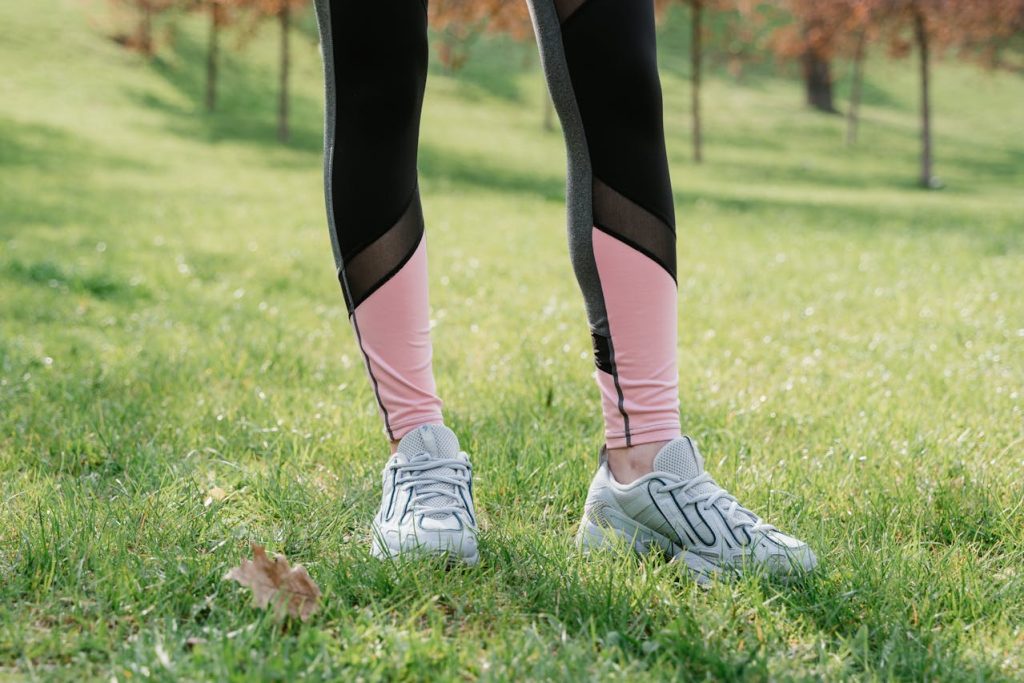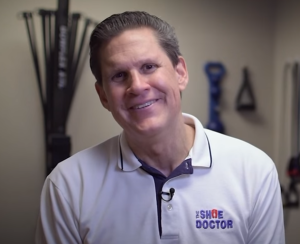Did you know that a staggering 75% of people will experience foot problems at some point in their lives? When it comes to enhancing mobility and alleviating discomfort, the choice between custom and over-the-counter orthotics plays a pivotal role. While both options aim to support your feet, the effectiveness can vary significantly. Custom orthotics are tailored to your unique foot structure, offering personalized support and alignment. On the flip side, over-the-counter alternatives provide a more generic solution.
Overview Of Orthotic Solutions
Custom Orthotics
Custom orthotics are personalized foot support solutions designed to address specific foot issues. They are crafted based on a mold or digital scan of the patient’s foot, ensuring a tailored fit. These orthotics offer precise support and alignment, promoting optimal foot function and mobility.
Custom orthotics are ideal for individuals with complex foot conditions such as plantar fasciitis or overpronation. By correcting biomechanical abnormalities, they alleviate pain and enhance overall comfort. The individualized nature of custom orthotics ensures a snug fit that effectively redistributes pressure and reduces strain on the feet.
- Offers precise support
- Corrects biomechanical abnormalities
- Alleviates pain and enhances comfort
Over-The-Counter Inserts
Over-the-counter inserts, on the other hand, are mass-produced foot support solutions available without a prescription. While they are more affordable and convenient than custom orthotics, they provide generic support that may not address individual needs adequately. These inserts offer basic cushioning and arch support but lack the tailored design of custom orthotics.
Over-the-counter inserts are suitable for individuals with mild foot discomfort or those seeking general support. However, they may not be effective for addressing specific conditions that require customized correction. Due to their one-size-fits-all approach, over-the-counter inserts may not provide the necessary relief for complex foot issues.
- More affordable and convenient
- Provides generic support
- May not address individual needs adequately
Importance Of Choosing The Right Orthotic Solution
Selecting the appropriate orthotic solution is crucial for improving mobility and overall foot health. Custom orthotics offer targeted support tailored to individual requirements, ensuring maximum effectiveness in addressing specific foot conditions. In contrast, over-the-counter inserts provide generic support that may not adequately meet the unique needs of each individual.
When choosing between custom orthotics and over-the-counter inserts, it is essential to consider the severity of your foot condition and the level of support required. Opting for custom orthotics can provide long-term benefits by addressing underlying issues and promoting proper alignment. On the other hand, over-the-counter inserts may offer temporary relief but might not offer lasting solutions for complex foot problems.
- Custom orthotics offer targeted support.
- Over-the-counter inserts provide generic support
- Consider the severity of your foot condition when choosing
Different Types Of Orthotics
Functional Orthotics
Functional orthotics are custom-made inserts designed to correct abnormal foot mechanics and improve overall movement patterns. They are tailored to address specific issues such as overpronation or supination, providing individualized support for each foot type. These orthotics are typically prescribed by podiatrists after a thorough assessment of the patient’s gait and foot structure.
Functional orthotics work by realigning the foot and ankle joints to distribute pressure evenly, reducing strain on muscles and ligaments. By enhancing biomechanical efficiency, they help alleviate pain and prevent injuries associated with poor foot alignment. These orthotics are recommended for individuals with conditions like plantar fasciitis, bunions, or flat feet.
Accommodative Orthotics
Accommodative orthotics focus on providing cushioning and support to relieve pressure points and enhance comfort. They are ideal for individuals with arthritis, diabetes, or other conditions that require extra padding to reduce friction and protect sensitive areas of the foot. Unlike functional orthotics, accommodative inserts do not aim to correct structural issues but rather to enhance mobility and reduce discomfort.
Accommodative orthotics are beneficial for seniors who may have reduced fat pads on their feet, leading to increased vulnerability to injuries and pain. These inserts are designed to accommodate various foot shapes and sizes, offering a customized fit for optimal comfort and support. They can help improve balance, reduce fatigue, and enhance overall mobility for individuals with weak or sensitive feet.
Over-The-Counter Inserts
Over-the-counter (OTC) inserts are prefabricated orthotic devices available without a prescription at pharmacies or specialty stores. While OTC inserts are convenient and cost-effective, they lack the personalization and precision of custom orthotics. These inserts provide basic cushioning and arch support but may not address specific foot issues or movement abnormalities.
OTC inserts are suitable for individuals with mild foot discomfort or those looking for temporary relief during physical activities. However, they may not offer adequate support for chronic conditions or severe foot deformities. Due to their generic design, OTC inserts may not provide the optimal level of correction needed for long-term improvement in mobility or pain management.
Custom Orthotics Benefits
Tailored Support
Custom orthotics offer tailored support that is specifically designed to fit individual foot shapes. Unlike over-the-counter options, custom orthotics are crafted based on a professional evaluation of the unique characteristics of each person’s feet. This personalized approach ensures a precise fit that addresses specific foot issues effectively.
Long-Term Relief
By providing customized support, custom orthotics can lead to long-term relief from chronic foot conditions such as plantar fasciitis, flat feet, or high arches. The individualized design of custom orthotics helps in correcting biomechanical imbalances and redistributing pressure evenly across the feet. This proactive measure not only alleviates existing pain but also prevents future injuries.
Professional Evaluation
Prescribing custom orthotics involves a professional evaluation process conducted by podiatrists or orthopedic specialists. During this assessment, various factors such as foot structure, gait analysis, and specific medical conditions are taken into account to determine the most suitable custom orthotic solution. This thorough examination ensures that the custom orthotics address the root cause of the issue rather than just providing temporary relief.
Over-The-Counter Inserts Pros
Convenience And Accessibility
Over-the-counter (OTC) shoe inserts offer convenience and accessibility to individuals seeking foot support without the need for a prescription. They can be easily purchased at pharmacies, shoe stores, or online platforms. This accessibility eliminates the waiting time typically associated with custom orthotics.
Immediate Comfort And Cushioning Benefits
Individuals often turn to OTC shoe inserts for their immediate comfort and cushioning benefits. These inserts are designed to provide relief from common foot issues such as plantar fasciitis, arch pain, or heel discomfort. The cushioning properties help alleviate pressure on specific areas of the foot, offering quick relief upon wearing them.
Affordability For Short-Term Use
One of the key advantages of OTC shoe inserts is their affordability, especially when compared to custom orthotics. While custom orthotics are tailored to an individual’s unique foot structure and needs, they can be costly. In contrast, over-the-counter inserts provide a more cost-effective solution for individuals looking for short-term relief or those on a budget.
Comfort And Fit Considerations
Custom Orthotics
Custom orthotics are meticulously crafted to fit the unique contours and characteristics of an individual’s feet. By utilizing advanced technology, such as 3D scanning and biomechanical assessments, these orthotics provide tailored support for various foot conditions. The precise fit ensures optimal alignment, reducing foot pain and discomfort significantly.
The design process of custom orthotics involves a detailed analysis of the individual’s foot structure, gait pattern, and specific needs. This personalized approach leads to enhanced comfort and improved mobility for the wearer. With custom orthotics, individuals can experience targeted relief from conditions like plantar fasciitis, bunions, or flat feet.
Over-The-Counter Inserts
In contrast, over-the-counter inserts offer a more generic solution without considering the individual foot characteristics or specific requirements. These inserts are designed to provide basic cushioning and arch support but may not address the root cause of the problem. Due to their one-size-fits-all nature, over-the-counter inserts may not offer adequate support for individuals with unique foot shapes or conditions.
While over-the-counter inserts are readily available and cost-effective, they lack the precision and customization of custom orthotics. Users may find that these inserts do not provide the necessary relief for chronic foot issues or fail to deliver long-term comfort. Over time, ill-fitting over-the-counter inserts can lead to discomfort, exacerbating existing foot problems rather than alleviating them.
Potential Discomfort
One common issue with over-the-counter inserts is the potential discomfort caused by improper fit. Since these inserts are not tailored to individual foot structures, they may create pressure points or alter the natural alignment of the feet. This can result in pain and soreness, especially during prolonged periods of standing or walking.
Moreover, inadequate arch support from over-the-counter inserts can lead to foot pain and fatigue. Individuals with high arches or flat feet may not receive the necessary support from these generic inserts, further contributing to discomfort and reduced mobility. In some cases, using ill-fitting over-the-counter inserts can even worsen existing foot conditions, necessitating a switch to custom orthotics for proper relief.

Functionality And Support Offered
Biomechanical Correction
Custom orthotics are meticulously crafted to provide precise biomechanical correction tailored to individual needs. These orthotics address specific foot irregularities, such as high arches or overpronation, enhancing overall foot function.
Over-the-counter inserts, on the other hand, offer generalized support without the personalized adjustments needed for optimal biomechanical alignment. They cannot correct intricate foot mechanics, limiting their effectiveness in serious conditions.
Improved Foot Function
Custom orthotics enhance foot function by redistributing pressure evenly across the foot, reducing strain on certain areas. This promotes a more natural gait pattern and can alleviate discomfort associated with various foot conditions.
In contrast, over-the-counter inserts primarily focus on providing basic cushioning and arch support, offering minimal assistance in improving foot function. While they may offer relief for mild issues, they fall short in addressing complex biomechanical problems.
Limited Functional Benefits
For individuals with severe foot conditions like plantar fasciitis or diabetic neuropathy, custom orthotics present significant benefits. These specialized devices can provide targeted support and cushioning to alleviate pain and enhance mobility, especially for those with specific medical requirements.
On the contrary, over-the-counter inserts have limited functional benefits for individuals with serious foot conditions. They may offer temporary relief but often fail to address the root cause of the problem, leading to ongoing discomfort and mobility issues.
Material Durability In Orthotics
High-Grade Materials
Custom orthotics are crafted from high-grade materials tailored to individual needs, ensuring optimal support and durability. These materials often include carbon fiber, rigid plastics, and durable foams.
Longevity Of Custom Orthotics
When properly maintained, custom orthotics exhibit exceptional longevity due to the superior quality of materials used. They can withstand daily wear and tear, maintaining their supportive properties for an extended period.
Wear And Tear In Over-The-Counter Inserts
On the other hand, over-the-counter inserts typically utilize lower-quality materials that are prone to quicker wear and tear. This results in a shorter lifespan, necessitating frequent replacements to maintain effectiveness.
Cost And Value Comparison
Initial Investment
When comparing custom orthotics to over-the-counter inserts, the primary difference lies in the cost. Custom orthotics are typically pricier upfront, while over-the-counter options come at a lower counter cost. Despite the higher initial investment for custom orthotics, they often prove to be more beneficial in the long run.
Custom orthotics are specifically tailored to an individual’s foot shape and gait, offering superior fit and support compared to generic inserts. While over-the-counter orthotics are more affordable initially, they may not provide the same level of durability and effectiveness as custom-made ones.
Long-Term Value
The durability of custom orthotics plays a significant role in their long-term value. Unlike over-the-counter inserts that may wear out quickly, custom orthotics are designed to withstand daily use for an extended period. This enhanced durability translates into sustained mobility benefits and overall comfort for the wearer.
Moreover, custom orthotics are crafted with high-quality materials that maintain their structural integrity over time. This ensures that users continue to experience the intended support and alignment that contribute to improved mobility. In contrast, over-the-counter orthotics may lose their effectiveness sooner, necessitating frequent replacements.
Insurance Coverage
For individuals concerned about the cost of custom orthotics, exploring insurance coverage options can provide financial relief. Some insurance plans may partially or fully cover the expenses associated with custom orthotics, making them more accessible to those in need. By leveraging insurance benefits, individuals can offset the initial investment and enjoy the long-term value of custom orthotics without bearing the full financial burden.
Pros Of Custom Orthotics:
- Personalized fit for enhanced support
- Superior durability for long-term use
- Potential insurance coverage for cost mitigation
Cons Of Over-The-Counter Inserts:
- Generic fit may not address specific foot issues
- Limited durability compared to custom orthotics
Choosing The Best Option
Assessing Needs
Before deciding between custom and over-the-counter orthotics, individuals should assess their specific foot conditions and lifestyle needs. Understanding the level of support required for their arches and the activities they engage in daily is crucial.
It’s essential to consider factors such as existing foot pain, any diagnosed conditions like plantar fasciitis, or the need for enhanced cushioning during high-impact sports. By evaluating these aspects, individuals can make an informed decision that aligns with their unique requirements.
Consulting Professionals
For personalized recommendations on orthotics, it is advisable to consult a healthcare professional. Podiatrists or orthopedic specialists can conduct thorough assessments to determine the most suitable option based on an individual’s foot structure and mobility goals.
Healthcare professionals can provide valuable insights into whether custom orthotics are necessary to address specific issues effectively. Their expertise can guide individuals toward the most beneficial choice for improving mobility and overall foot health.
Weighing Pros And Cons
When comparing prescription orthotics to over-the-counter alternatives, individuals must weigh the pros and cons of each based on their mobility goals and budget constraints. Custom orthotics offer tailored support, addressing individual foot biomechanics and providing precise correction for alignment issues.
On the other hand, over-the-counter orthotics are more accessible and cost-effective, making them a convenient option for individuals with mild to moderate foot discomfort. While they may not offer the same level of customization as custom orthotics, they can still provide adequate support for general use.
Pros Of Custom Orthotics:
- Tailored support for specific foot conditions
- Precise correction for alignment issues
Cons Of Over-The-Counter Orthotics:
- Limited customization compared to custom orthotics
- May not address complex foot biomechanical issues
Final Remarks
In the quest for better mobility, choosing between custom and over-the-counter orthotics is crucial. Understanding the benefits, costs, materials, and support each option offers is key to making an informed decision that aligns with your needs and lifestyle. As you weigh the pros and cons of custom orthotics’ tailored fit against the convenience and affordability of over-the-counter inserts, remember that comfort and functionality are paramount in enhancing your mobility.
When selecting the best orthotic solution for you, prioritize factors like durability, support, and overall value to ensure long-term benefits. Your mobility matters, so make a choice that not only improves your movement but also enhances your quality of life. Take the time to assess your preferences and requirements before investing in orthotics that will support you every step of the way.
Enhance Foot Health With Custom Orthotics From The Shoe Doctor!
Are you dealing with foot pain that disrupts your daily life? Proper foot health is essential, and custom orthotics tailored specifically to your needs can be the solution. These personalized orthotics not only alleviate foot pain but also improve your posture and overall well-being.
At The Shoe Doctor, we bring over twenty years of expertise in crafting custom orthotics designed to support optimal foot health. Our mission is to provide orthotics that relieve discomfort, offer essential support, and enhance stability with every step.
Russell, our dedicated specialist, ensures that your orthotics are perfectly fitted to your feet using precise 3D foot mappings and state-of-the-art technology. By partnering with the Spine & Injury Medical Center in San Jose, California, we adopt a holistic approach to address foot health challenges comprehensively.
Ready to improve your foot health? If you’re in the South San Francisco Bay Area, The Shoe Doctor is your go-to destination for custom orthotics designed to enhance foot health and improve your quality of life. Begin your journey to healthier feet with a complimentary initial consultation.
Don’t wait—schedule your consultation today and experience the benefits of custom orthotics with The Shoe Doctor!
Disclaimer
The materials available on this website are for informational and entertainment purposes only and not to provide medical advice. You should contact your doctor to obtain advice concerning any particular issue or problem. You should not act or refrain from acting based on any content included in this site without seeking medical or other professional advice. The information presented on this website may not reflect the most current medical developments. No action should be taken in reliance on the information contained on this website and we disclaim all liability for actions taken or not taken based on any or all of the contents of this site to the fullest extent permitted by law.


